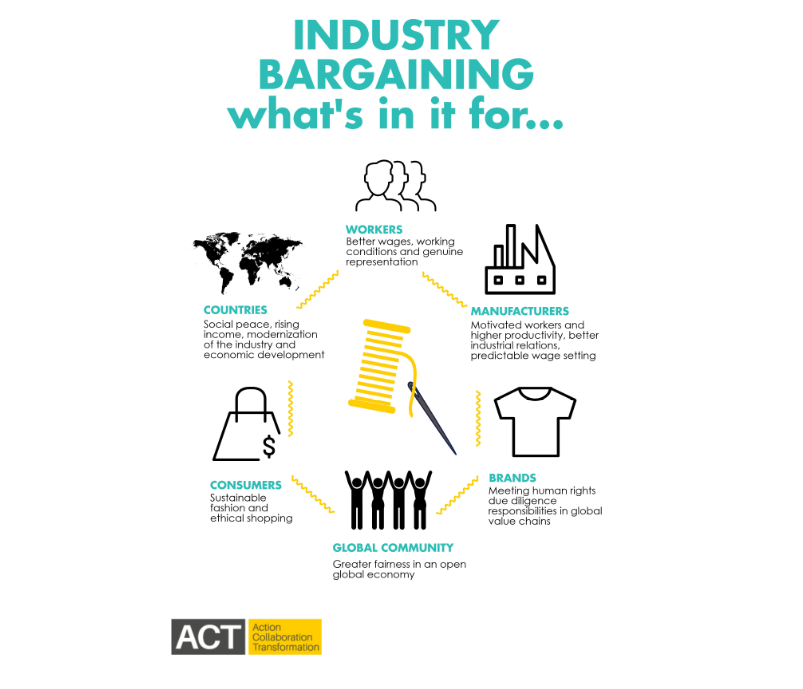In recent years, there has been a growing awareness of the impact the fashion industry has on human rights. As someone who is passionate about both fashion and social justice, this issue hits close to home for me. I have always believed that fashion should not only be about the latest trends and styles but also about the people who make the clothes we wear.

When we think about the fashion industry, we often imagine glamorous runways and beautiful clothes. However, behind the scenes, there is a dark reality that many people are unaware of. The truth is that many fashion brands rely on complex and often exploitative supply chains, where human rights violations occur at various stages of production.
One of the most common human rights abuses in the fashion industry is the use of sweatshops. These are factories where workers, who are predominantly women, endure long hours, low wages, and unsafe working conditions. These workers are often denied their basic rights, such as the freedom of association and the right to fair wages. It is alarming to think that the clothes we wear may have been produced under such conditions.
This realization prompted me to dig deeper into how the fashion industry can address these human rights violations. One term that kept coming up in my research was “ethical fashion.” Ethical fashion encompasses a range of practices that aim to protect the rights of workers and promote sustainable production processes.
One key aspect of ethical fashion is transparency in the supply chain. This means that brands should be able to trace the journey of their products from raw materials to the finished garment. By knowing where and how each item is produced, companies can ensure that their workers are not being exploited and that their rights are respected. Many brands have started to implement supply chain transparency through audits and certifications, which allow consumers to make informed choices about the clothes they buy.
Another important aspect of ethical fashion is the fair treatment of workers. This includes providing fair wages and safe working conditions. Brands that prioritize ethical fashion often invest in training programs and empowerment initiatives for their workers, ensuring that they have the necessary skills and resources to thrive in their jobs. By creating a positive work environment, these brands can contribute to the overall well-being of their employees.
But what can consumers do to support this movement? As individuals, we have the power to make a difference through our purchasing choices. By opting for brands that prioritize ethical fashion, we can send a strong message to the industry that we care about human rights. It is important to look for certifications and labels that guarantee fair trade, sustainable materials, and ethical practices.
Furthermore, as consumers, we can also make our voices heard through advocacy and activism. By joining campaigns and organizations that advocate for improved labor conditions in the fashion industry, we can put pressure on brands to prioritize human rights. This collective action is crucial in creating a more equitable and sustainable fashion industry.
Another avenue to explore is the second-hand market. Buying pre-loved clothes not only helps reduce waste but also supports a more ethical fashion industry. By giving these clothes a second life, we can reduce the demand for fast fashion and its associated human rights abuses.
In conclusion, addressing human rights in the fashion industry is a complex task that requires the collaboration of all stakeholders involved. As consumers, we must demand transparency and accountability from brands, choose to support ethical fashion, and raise awareness about this critical issue. By doing so, we can contribute to the creation of a fashion industry that upholds the rights and dignity of every worker involved in its supply chain. Let us not forget that our choices have the power to make a difference, and together, we can shape a more responsible and compassionate fashion industry.
